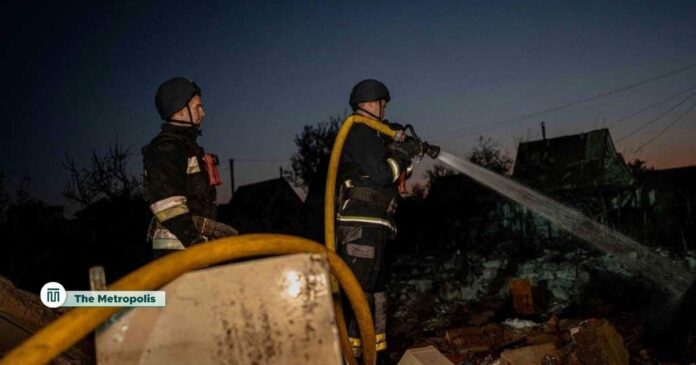Three sources with direct knowledge of the situation claim that Iran did not supply the close-range ballistic missiles Washington accused Tehran of sending to Russia for use against Ukraine, nor did it include mobile launchers with them.
According to the sources, which included a US official, a European diplomat, and an intelligence official from Europe, it is unclear why Iran did not provide launchers with the Fath-360 missiles, raising concerns about whether or not the weapons will be operational.
According to the US official, who, like the other sources, spoke under anonymity, Iran had not yet delivered the launchers when the US announced that Iran had delivered the weapons. The European intelligence official stated, without providing further details, that they did not anticipate Iran supplying launchers.
Reuters first reported on the Iranian plan to launch the missiles into Russia.
Two experts told Reuters that Russia might not have sent the launchers for a number of reasons. One is that, similar to Iran, Russia might modify trucks to carry the missiles. Another is that Iran is creating room for fresh negotiations on reducing tensions with Western countries by not providing the launchers.
The Russian ministry of defence remained silent.
The US National Security Council did not immediately respond to a request for comment, and the Pentagon declined to comment.
Iran’s UN mission did not immediately respond to a request for comment.
Tehran disputes giving thousands of drones and missiles to Moscow, which officials in Kiev and the West claim Moscow uses to destroy civilian infrastructure, including the electrical grid in Ukraine, and strike military targets.
Iran had given Russia the Fath-360s, according to US Secretary of State Antony Blinken, who stated on September 10 that Russia would “likely use them within weeks in Ukraine.”
Ukraine, whose air defences are constantly updating to counter new tactics used by Russian forces, would face an additional challenge from the missile. According to Iran’s semi-official Fars news agency, the missile approaches targets at four times the speed of sound.
According to Blinken, since the missiles would only fire against short-range targets and pose a threat to European security, Russia would be able to save more of its vast arsenal for targets outside of the front lines. The Fath-360’s range extends up to 75 miles (121 km).
The EU announced that it was considering new sanctions aimed at Iran’s aviation industry, while the US, Germany, Britain, and France imposed new sanctions on the country.
At the time, the Kremlin acknowledged that it was cooperating with Iran in “the most sensitive areas,” but it would not confirm that it had received the missiles.
Blinken didn’t specify when or how many Fath-360s Iran sent to Russia.
Reuters used shipping data to establish that, between May and September 12, the Russian freighter Port Olya-3, which was sanctioned by Washington, made multiple trips between the Russian port of Olya and the Iranian port of Amirabad in the Caspian Sea.
Fabian Hinz, an expert on Iranian missiles at the International Institute for Strategic Studies, stated that he could not confirm Tehran’s claim of withholding the launchers.
A specially designed launcher is required to fire a ballistic missile.
Hinz speculates that the fact that Iran modified civilian trucks to launch these and other missiles may have contributed to the country’s decision to withhold launchers since the vehicles aren’t sturdy enough to handle rough terrain in the harsh winter weather in Ukraine. According to him, Iran converts trucks manufactured by Mercedes and other companies into easily surreptitious missile launchers.
He went on, “That implies that Russia could alter its own military-grade vehicles.”
“A commercial, off-the-shelf Mercedes truck is just not that off-road capable,” said he.
It was also unclear whether Iran supplied the launchers, according to David Albright, the director of the Institute for Science and International Security and a former UN nuclear inspector.
However, he pointed out that in an attempt to explore the possibility of diplomacy regarding Tehran’s nuclear program, regional tensions, and other issues, he and other Iranian officials, along with President Masoud Pezeshkian, will meet with European officials during the UN General Assembly in New York next week.
He speculated, “It’s possible that Iran is delaying the launchers to give us some breathing room for these discussions.” The General Assembly might condemn Iran if its missiles were raining down on Ukraine, as one could imagine.
He said he doubted Iran would make the required concessions, but expressed skepticism about any progress.



